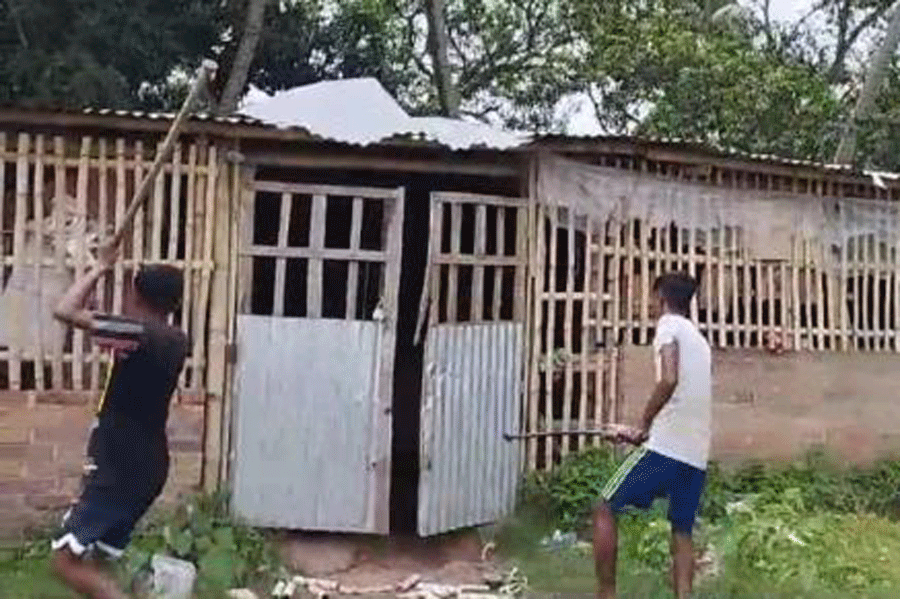The illegal fireworks unit in Duttapukur of North 24-Parganas, where at least eight people died in Sunday's blast, opened a year ago but local protests failed to stop its operations as the unit gave income to around 100 homemakers engaged in packaging the firecrackers.
Many villagers in Duttapukur's Mojpole said after the May 16 blast in the fireworks unit in East Midnapore's Egra, they sought the fireworks production-cum-storage unit in their village be shut, but the lack of jobs, including those under the Centre's 100 days' scheme, ensured that it continued to run.
"After the Egra blast, we asked the house owner to stop such a risky unit in our village. But the women workers said they did not want to lose out on income. We failed to make them understand the risks," said Salima Biwi, a Mojpole resident.
A source said that as soon as the unit opened in April last year, the owners offered jobs to local women with Rs 250-Rs 350 a day to wrap and pack the firecrackers from the convenience of their homes.
"Some 100 women lapped it up as they could earn from home. Extra income was welcome to their families. Delivery boys brought the cracker mixture, wrappers and packets to their doorsteps. The boys again took back the ready products," said a villager.
The trend of women working in hazardous jobs was also revealed after the Egra blast where 12 people were killed in May. There, bereaved kin claimed the women worked in the illegal factory as the 100 days' job scheme had stopped.
In Mojpole, there wasn't as much scope for jobs under the 100 days' scheme because of its largely suburban character. Still, villagers claimed people would get jobs under the central scheme for at least 50 days.
An unskilled labourer gets Rs 237 a day under the 100 days' job scheme.
The Centre froze funds for the scheme in Bengal since January 2022, citing anomalies.
"As there was no other earning option after the closure of the 100 days' scheme, no political leader stopped the production of firecrackers in a crowded area," said a villager.
Surajit Mukhopadhyay, dean of social sciences at the Royal Global University in Assam’s Guwahati, told this newspaper that rural Bengal's joblessness had paralysed its political leaders.
"It isn't possible that local political leaders, especially those in gram panchayats, did not know about such high-risk factories.... They did not try to prevent villagers from working in these high-risk jobs for fear of losing votes. That is why such illegal factories have been mushrooming," he said.
Babla Roy, chairman of the All Bengal Fireworks Association, who visited the blast site on Sunday, claimed the unit produced high-risk bombs in the name of fireworks and workers, including the women, might not have known about the risks fully.










